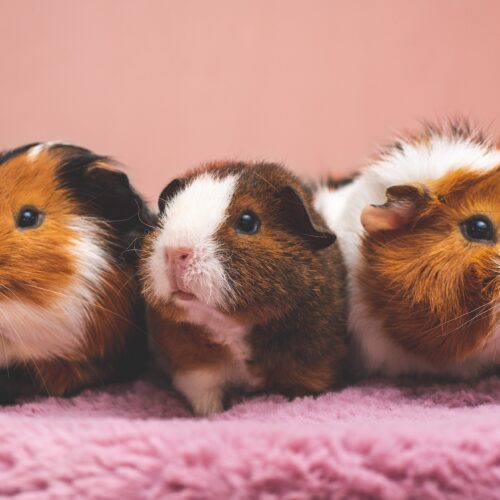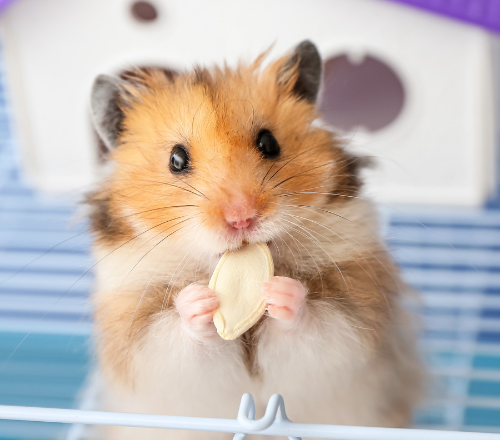Deforestation is a term that’s cropped up a lot over the last few years as the world becomes more environmentally conscious, but it can be difficult to know exactly what it’s all about. If you’re looking to learn more about deforestation, scroll on to read about its causes, effects and how we source sustainably with the Forest Stewardship Council® (licence code: C074684).
What does deforestation mean?
Put simply, deforestation is the act of removing trees to clear forests. Whether it’s deliberate, accidental or natural, it’s all classed as deforestation. It also doesn’t matter what happens to the wood afterwards – whether it’s simply destroyed, used to make things or used as fuel. If the forest is removed, it’s deforestation. It can happen anywhere you find lots of trees and other plant life, such as your local woods or national parks, but the worst of it is happening in the rainforests.
However, it’s not all bad news. Trees are a vital natural resource, and where forests are responsibly managed in partnership with the Forest Stewardship Council (FSC®), the effects of deforestation can be offset.
What is FSC®?
The Forest Stewardship Council®is an international organisation dedicated to protecting and preserving the environment, the people who depend on it, and the businesses who interact with it. Its core values are centred on making forestry viable economically, environmentally and socially.
The FSC® don’t just protect the forests, though – they protect local communities, indigenous people and animals, too. They even work with businesses to make using natural resources sustainable. Paper and wood are used in millions of products worldwide – and the FSC® works to make sure all of those products source their materials from responsibly managed forests.
What does FSC® certified mean?
FSC® certification is a label that indicates approval from the Forest Stewardship Council. There are different kinds of certification available – for example, forest management certification that shows a forest is being held to strict social, economic and environmental standards.
When it comes to products that use paper or wood, FSC® chain of custody certification shows that a company uses only FSC® certified materials in its supply chain. In the case of toilet paper and kitchen roll, it means that here at Oceans we only ever use wood from FSC® (licence code: C074684) certified forests so we can be sure we’re financing responsible forest management.
How does FSC® help the environment?
The FSC®’s work to help forest owners manage their forests responsibly has helped to make the practice financially viable. That way, more and more forest owners are getting the economic support they need to protect their local environment and communities.
This means the area has more wealth to support conservation efforts such as captive breeding programs, upgraded energy sources, improved infrastructure and more. Additionally, it can help support indigenous communities who in turn have insights into sustainable living and caring for the land.
When the FSC® finds a forest in need of improvement, it gives the forest owners recommendations on how to increase the viability of their forest environmentally, economically and socially, and helps support the owners in making these changes to gain or maintain FSC® certification.
Here’s why they do it.
Why is deforestation bad?
There are a number of reasons why deforestation is bad, many of which are directly linked to the environment. Here are some of the effects of deforestation:
Evicting indigenous peoples
Although this isn’t one of the most well-known effects of deforestation, it’s actually one of the first to happen. Those who want to clear the forest can’t do so if there are people living in it – so they’ll evict the indigenous communities so the deforestation can go ahead. This increases poverty by forcing indigenous people out of their homes. It can also mean existing urban and rural communities become more densely populated – with fewer resources to go around.
Increased levels of greenhouse gases in the atmosphere
Trees are beautiful objects of nature that play a key role in preventing climate change. During the process of photosynthesis, trees absorb carbon dioxide from the air and produce oxygen. Carbon dioxide is a greenhouse gas, which means it warms the planet. By storing carbon dioxide, trees help to reduce global warming.
When cut down, however, the trees can’t absorb any more carbon dioxide. In fact, if they are burned or destroyed, all that carbon dioxide is released back into the atmosphere. The fewer forests we keep, the more likely we are to feel the effects of climate change, but well managed forests can help to repair, avoid and mitigate negative environmental impacts.
Loss of habitat
Of course, trees also provide homes to a wide variety of species – and they, too, can be lost as a result of deforestation. Birds, small mammals, insects and reptiles often live in tree canopies and in the undergrowth. If the forest goes, they have nowhere to live. This can put them at risk in several ways, from increased predation to heat fatigue to starvation.
In the long term, deforestation affects even more species indirectly. If populations of prey animals decrease, then predators won’t have enough food, and we may lose them, too. Increasing temperatures can make certain climates unlivable, and rising sea levels could threaten a wealth of land animals, too.
But it’s not just about the animals. Deforestation also affects the plant ecosystem as many different species of plants rely on the trees to survive. Any plant species that requires shade from the hot sun would find itself suddenly in direct sunlight without trees, and so would likely struggle to survive.
Dry soil
Going further, deforestation can affect the amount of water in the atmosphere. Trees are an integral part of the water cycle, taking water from the ground and releasing it as vapour into the air. This water vapour then falls as rain somewhere else, which replenishes rivers and oceans.
Take away the trees, though, and those rivers could dry up. Without water feeding the land, soil could become dry and lack the nutrition needed to support life, which could in turn mean that crops fail. This increases the potential for poverty and hunger within local communities.
What are the causes of deforestation?
There are many causes of deforestation. Some of the most impactful include agricultural expansion, logging for fuel and expanding infrastructure.
Agricultural expansion is where land is cleared to make room for more crops or livestock for farmers. Logging clears the trees so that the wood can be used for fuel – either for charcoal or domestic wood-burning. And infrastructure needs room, too, so forests are often cleared to allow for urban expansion.
Does toilet roll production contribute to deforestation?
To make toilet paper, trees are cut down. You might think that buying bamboo toilet roll or toilet paper made from recycled materials is better for the environment, but these materials are actually harder to make into the soft toilet paper we use every day. Because of this, the process of making toilet paper from virgin pulp – i.e. non-recycled material – is less carbon-intensive, and therefore can have a smaller impact on the environment.
To limit the environmental impact of your household, buying eco-friendly toilet paper is a good move. At Oceans, our toilet roll is completely plastic-free and uses wood sourced from responsibly managed forests – that’s why we’re FSC® certified (licence code: C074684).





